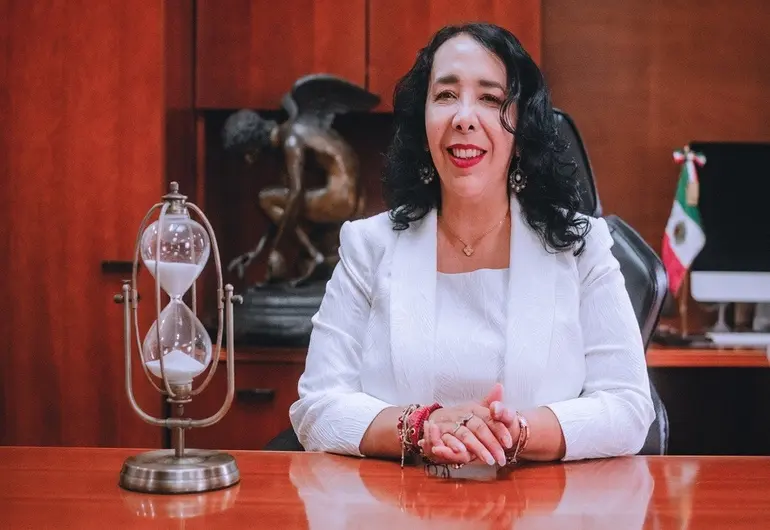Washington woke up with a list and Rosarito’s former mayor was on it. The U.S. Treasury’s Office of Foreign Assets Control (OFAC) says Hilda Araceli Brown Figueredo, who ran Rosarito City Hall from 2021 to 2024 and now sits in Congress under Morena’s banner, was part of a Sinaloa Cartel racket. The accusation isn’t a court case but a financial hammer: sanctions that freeze any assets in U.S. reach and bar Americans from doing business with her or with the fifteen Rosarito companies the Treasury just blacklisted.
The U.S. statement is blunt. During Brown’s term, cartel operators tied to the Arzate brothers—better known as “Aquiles” and “La Rana”—allegedly installed allies inside local government. Treasury claims Brown, along with fixer Candelario Arcega, collected extortion money, greased operations, and made sure Rosarito’s police looked the other way. In government jargon it’s “facilitating illicit operations.” For residents, it reads more like the city was subcontracted to organized crime.
Brown’s response came quickly and angrily. She called the allegations an “infamia,” insisted her bank accounts are fine, and said she only found out by watching the news like everyone else. She promised to cooperate with whatever authority asks questions. It’s the political equivalent of shrugging while the U.S. slaps a neon sticker on your forehead.
Governor Marina del Pilar Ávila was caught mid-press scrum in Tijuana when reporters asked for comment. Her answer was cautious: just received the info, no further details, let’s wait. She did admit Brown once sat in state security meetings. That’s not the endorsement you want when Washington is describing you as a bagwoman for the Sinaloa Cartel, but it’s all she offered.
For locals and expats, it’s important to understand what sanctions mean. No police raid, no handcuffs, not yet. OFAC designations are paperwork weapons; they strangle money, not people. Banks from San Diego to Mexico City see the list and quietly close doors. Suppliers stop answering calls. Mexico’s own Financial Intelligence Unit has already said it will mirror the move with an administrative freeze, which means even more banking headaches. None of it is proof in court, but it can ruin business overnight.
The credibility question hangs in the air. OFAC doesn’t publish courtroom evidence, only carefully worded accusations. Targets deny everything, always. Still, the U.S. rarely backpedals once a name is public. And the list is long—Brown’s not alone. Operators, relatives, and companies in Rosarito were all designated together, suggesting a network, not a typo.
Brown remains in Congress, still drawing a salary and still claiming innocence. The governor is hedging, the federal party is silent, and the Americans have already moved on to drafting the next sanctions package. Meanwhile, Rosarito is left wondering if its city hall was ever working for the voters or if it was just a branch office of “Los Mayos.”
For expats who wire money, rent property, or buy into local businesses, this is where you pay attention. Sanctions ripple. If a firm is half-owned by someone on the list, banks can shut it down. Compliance departments don’t care about local politics—they care about not getting fined by the U.S. Treasury.
The bottom line is simple enough. The United States just accused Rosarito’s ex-mayor of helping a cartel tax her own city. She says it’s all lies. The governor says she’ll wait and see. And everyone else is left to calculate how long it takes for financial blacklists to turn into political consequences in Mexico. Until then, it’s just another day in Baja, where the ocean steals your flip-flops and Washington steals the headlines.




3 Comments